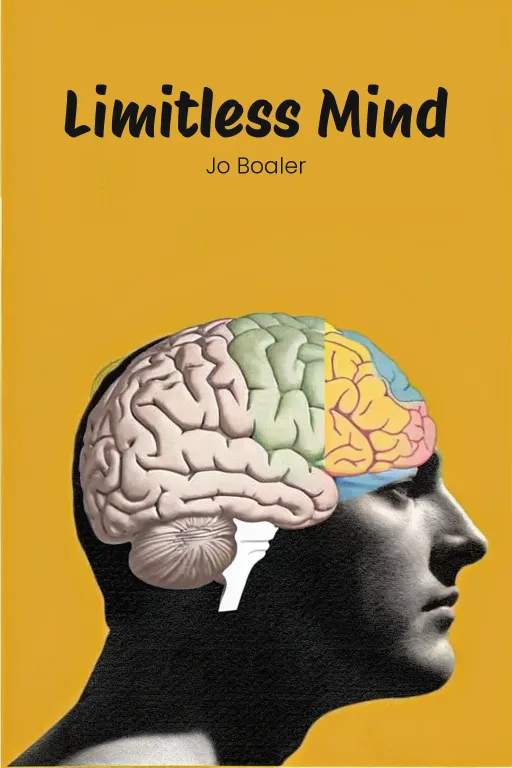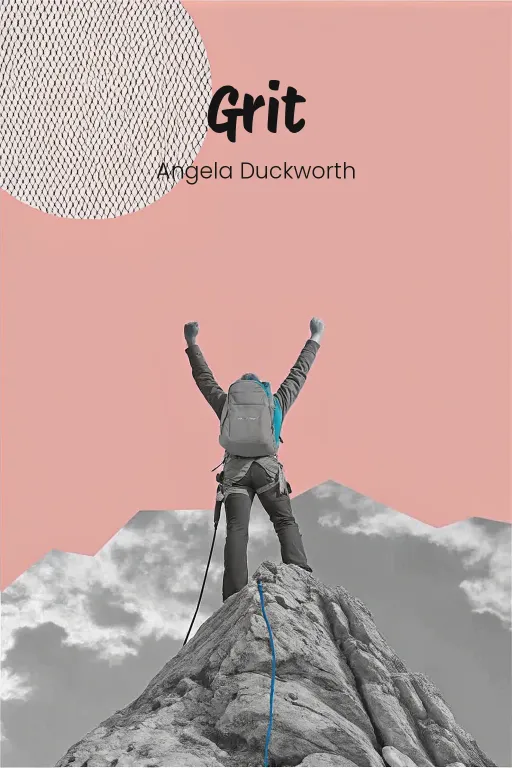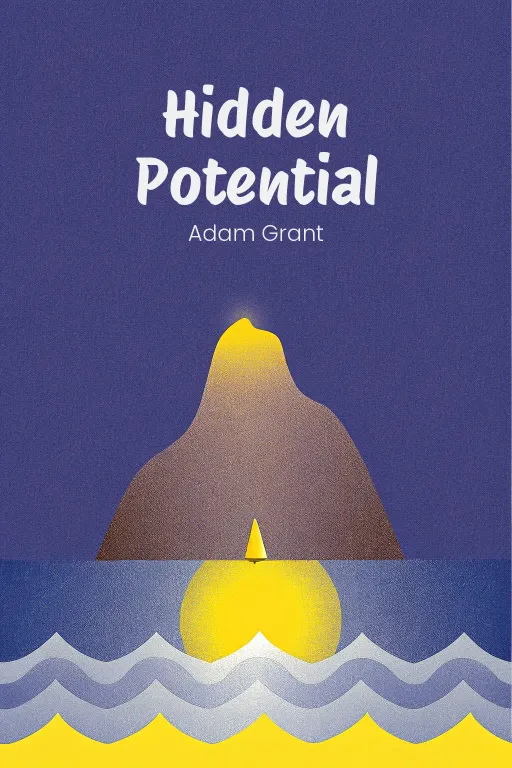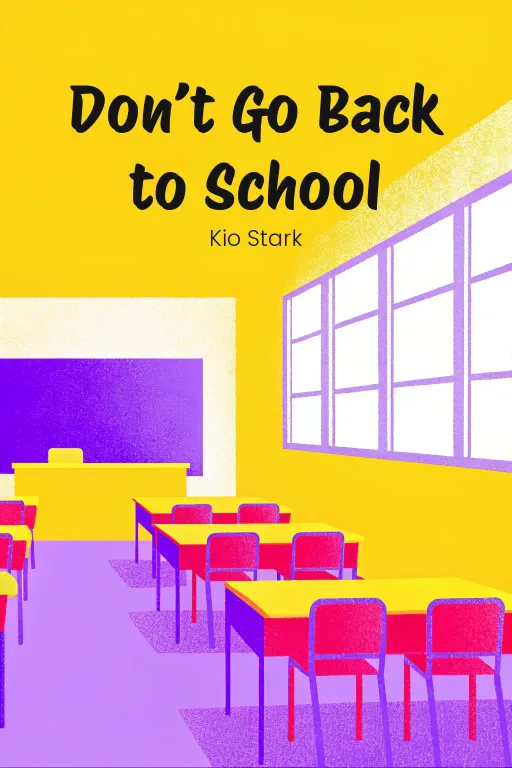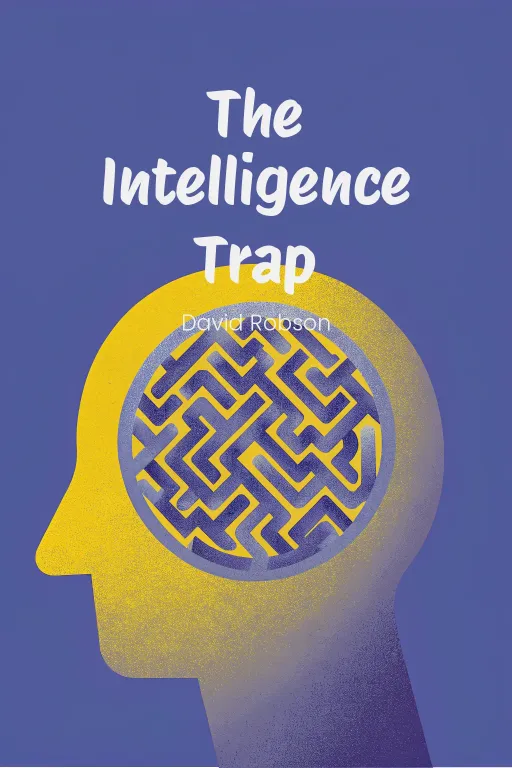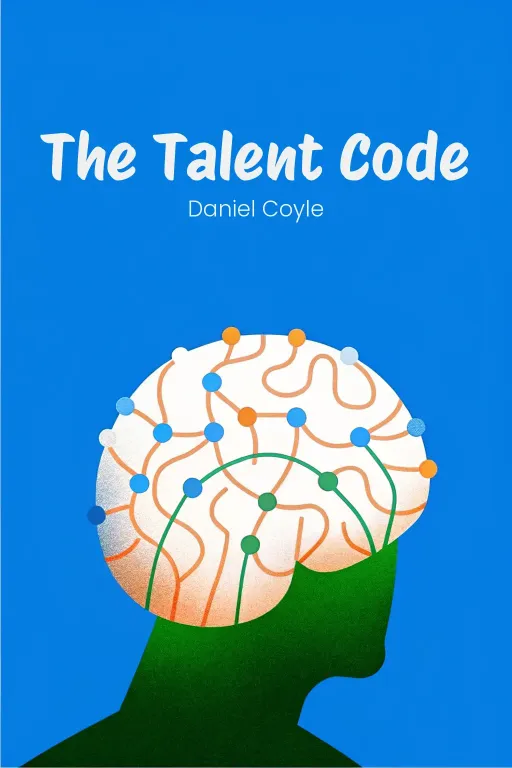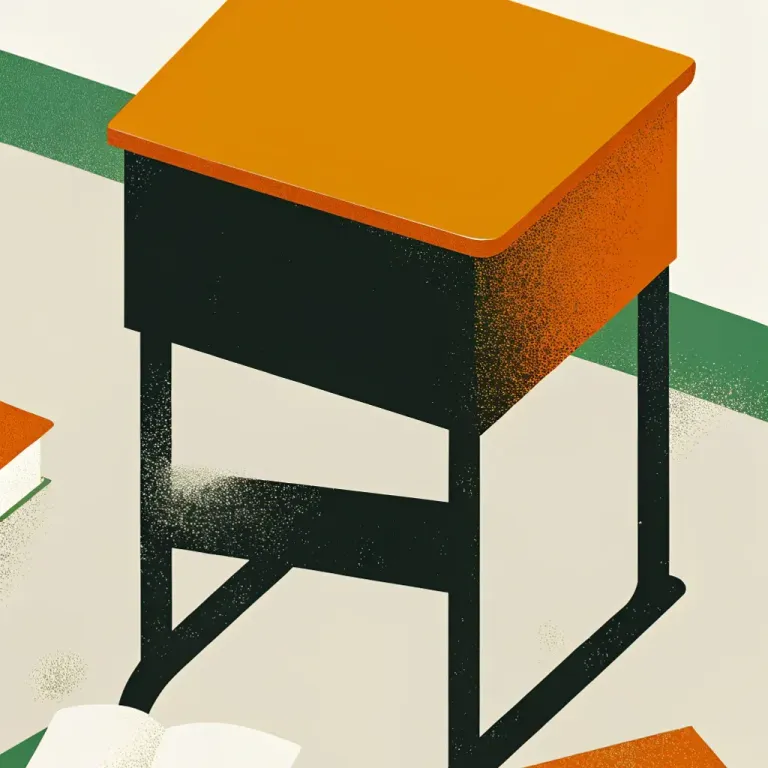
Career Hack: Learn Without the Loans
Podcast by Chasing Sparks with Alex and Justine
A Handbook for Learning Anything
Career Hack: Learn Without the Loans
Part 1
Alex: So, Justine, what if I told you that ditching school could actually make you “smarter”? Justine: <Scoffs> Oh, here we go. Let me guess, Alex, you've been mainlining inspirational TED Talks again? Alex: Nope! Just been reading Kio Stark’s Don't Go Back to School. It’s a book that completely rethinks how we approach education. Stark argues that learning outside the rigid structure of the classroom -- without the tuition fees, the homework, the pressure of a degree actually holding you back, can often times be a path to greater success. Justine: So, you're talking about a heavy dose of self-motivation, a sprinkle of internet deep dives, and then just declaring yourself "educated"? Alex: Not quite! Stark actually interviewed over 100 self-taught individuals – artists, coders, entrepreneurs – all proving that formal schooling isn’t the only path to the top. Instead, she emphasizes that raw curiosity, community engagement, and hands-on projects are the “really” key ingredients to “real” learning that sticks. Justine: Okay, I’m intrigued, but completely overturning traditional education? That’s a pretty radical position. Alex: That’s exactly what we’re going to unpack today. We’ll explore the shortcomings of the current system, discuss how to create your own personalized learning journey, and – this is my favorite part – how to actually build a career out of it. Justine: So, essentially, we’re designing a new kind of school, just without the mystery meat in the cafeteria or soul-crushing student loans? Alex: Precisely! Ready to jump down this rabbit hole? Justine: Alright, lead the way. I'm curious (but still skeptical).
The Flaws of Traditional Education
Part 2
Alex: So, let’s dive into why the conventional education system seems to be losing its appeal. Stark brings up some pretty obvious problems, like the insane cost of higher education. We're talking about over $1.5 trillion in student debt in the U.S. alone. It's not just a personal financial nightmare; it's a drag on the whole economy. Justine: Exactly, it's wild. You spend years paying off loans, and it’s like you're constantly starting from zero. But Alex, didn’t we always believe that a degree was the magic key? Wasn't the deal, like, "Go to college, study hard, and you'll have a better life"? Alex: That's the very idea Stark is challenging. She says the system just doesn't deliver on that promise anymore—if it ever truly did. Look at grads with degrees in, say, business or English. They often end up in entry-level jobs that barely cover the interest on their loans. And that’s not just a few isolated cases; it's a systemic issue. Justine: Okay, but we can’t just throw the whole thing out, right? There are fields—medicine, law, engineering—where a formal degree is still essential. I mean, you wouldn’t want a brain surgeon who learned everything from YouTube tutorials, would you? Alex: Of course, Stark acknowledges that. She's not saying every field should abandon formal education. Her point is that the system is too inflexible for many fields and doesn't adequately prepare people for today's careers. For example, an outdated curriculum won't teach you how to solve problems in a world where new skills are constantly emerging. Justine: Right, like graduating with skills in Excel when the world has already moved on to automation and AI. You start out already behind. Alex: Exactly. She tells a story about a young woman interested in art history and curatorial work. Instead of going the traditional degree route, which wasn't really aligned with the skills she needed, she joined a community-driven learning group. She connected with other artists, learned directly from working professionals, and eventually launched her career—without spending a fortune or sitting through boring lectures. Justine: Community-driven learning? Is that just a fancy way of saying “network, network, network”? Alex: Not exactly. It's about finding spaces—online and in person—where people share knowledge collaboratively. Think of platforms like Stack Overflow or Reddit, where pros help each other and exchange expertise. These aren't just passive groups; they're dynamic spaces where learning is interactive and always changing. Justine: That's interesting, I'll give you that. But isn't it also risky? What if you want to move into a different field, and your GitHub or Reddit reputation doesn't mean anything in that new area? Alex: Stark addresses that by focusing on skills over traditional qualifications. Employers are starting to care more about what you can do than where you learned it. Self-directed learners demonstrate their skills through projects, portfolios, or real experience. For instance, software developers often get hired without degrees simply because their personal projects show what they’re capable of better than any transcript could. Justine: Fair enough, but that doesn't work in every field. And even with all its flaws, doesn't the current system still help create a more equal society? For first-generation college students or those from lower-income backgrounds, isn’t a diploma still one of the few ways to get ahead? Alex: That's a really important point, and Stark doesn't ignore it. She actually points out how inaccessible traditional education has become, even for people who need it most. The rising cost of tuition and limited scholarships put it out of reach for many. On the other hand, independent learning—though not perfect—can be more affordable and flexible. With free resources like MOOCs, library programs, and open-source materials, it's much easier to get started. Justine: True, assuming you have the drive. Let's be honest—most people struggling just to get by don't have time for a DIY education. Aren't we kind of shifting the responsibility away from the institutions that should be providing equal opportunities? Alex: I understand, and Stark isn't suggesting that self-directed learning is a perfect substitute for fixing the system. But until those changes happen—and frankly, they're happening very slowly—we need accessible, adaptable, and curiosity-driven alternatives. That’s where these autodidact communities come in. Justine: It’s a pretty convincing case. So, traditional education gives you debt, a diploma, and maybe some networking. But independent learning gives you freedom, flexibility, and maybe even a stronger sense of community. Alex: Exactly! And here's the kicker: independent learners often feel more connected and motivated because they're pursuing something they're genuinely passionate about, rather than following a set path. That sense of ownership makes a huge difference. Justine: Ownership, huh? So instead of “school walls,” we're building our own learning hubs. Could be revolutionary. Could be chaos. Alex: Maybe it's both. But either way, the failures of traditional education are forcing us to consider new options—and that's a conversation we “really” need to be having.
Methods and Strategies for Independent Learning
Part 3
Alex: So, all this critique naturally leads us to wonder: what are the alternatives? How do we empower individuals to take learning into their own hands? I mean, if we agree the current system often misses the mark, then we need to explore how self-directed learners can actually thrive. Let’s dive into the actionable side of this: the methods and strategies for independent learning. Justine: Agreed. So far, you’ve convinced me the traditional school system isn't perfect, but how do you “actually” do this self-learning thing realistically? Do I just grab some books, lock myself in a room with my laptop until I magically understand calculus, and hope for the best? Alex: Not quite. Stark actually breaks down specific strategies to help folks tackle independent learning, step by step. It starts with choosing a personalized learning path. There's the “linear approach”, where you follow a structured sequence, like a syllabus. Then there’s the “associative approach”, which is more organic and driven by your own curiosity. Justine: Okay, "linear" I get. Basically, traditional school minus the campus, right? But what’s the argument for going associative? Why choose that path? Alex: Well, associative learning taps into how our minds naturally work, you know, jumping from one idea to another. It's like following hyperlinks. You start with a topic that fascinates you, and your interest leads you to connected areas organically. Say you’re obsessed with particle physics but don’t want to start with Newton’s laws. An associative learner might dive straight into concepts that excite them, like the Large Hadron Collider, and then work backward to fill in any gaps. Justine: Sounds fun, but also risky, right? What if you miss some critical foundational knowledge while chasing those rabbit holes? It’s like trying to make a complicated dish without knowing the basics, right? Alex: Exactly, that’s the potential pitfall. For associative learning to really work, you need to be self-aware enough to identify and fill those gaps. But it’s also incredibly rewarding because when you’re intrinsically motivated, the learning just sticks. Justine: I see. So, less about learning the rules before you can break them later, and more like turning your curiosity into an all-you-can-eat buffet. Alex: Precisely! And there are tools to support both approaches. For linear learners, Stark suggests using syllabi from universities or reputable online platforms as a roadmap. Associative learners, on the other hand, can thrive with resources like Wikipedia or YouTube, where new connections seem to emerge organically as you explore. Justine: Okay, I’m starting to see the appeal of tailoring your education, but do you have an example of someone who’s made these methods work in the real world? Alex: Stark highlights some standout cases. Take David Hirmes, for example. He explored physics and art through the associative method – specifically, macrophotography. He started experimenting with freezing water and photographing ice structures, combining art and science in a way that a standard classroom just wouldn’t allow. He went beyond traditional boundaries, and his work even caught the eye of “The New York Times”. Justine: So, he just picked up a camera, experimented, and landed on the radar of a major media outlet? That’s pretty amazing. Alex: It is! But it wasn’t just playing around—it was intentional exploration rooted in both curiosity and discipline. He wove structured research into his creative process, carving out a niche most traditional physics students wouldn’t even think about. Justine: I'm convinced. Associative learning sounds way cooler than I initially thought. But let’s give some love to the linear folks too—some people “really” do thrive on order and clear progression, right? Alex: Absolutely. And that's the beauty of self-directed learning: you can build your own mix between linear and associative methods based on your strengths, personality, and goals. Justine: Speaking of goals, let's talk more about tools. You mentioned syllabi and Wikipedia, but isn’t there something more… robust? I imagine an independent learner needing resources beyond random Google searches. Alex: I was just about to get to that. Stark talks about specific tools and platforms. Massive Open Online Courses, or MOOCs, are a popular option – platforms like Coursera and edX offer structured courses on, well, everything from computer science to creative writing. Justine: Right, MOOCs. They're great in theory—super professional, lots of options—but don't they have limits? A friend of mine said his MOOC felt kind of impersonal. Alex: That’s a fair point. MOOCs can sometimes mimic traditional education a little too much, with rigid assignments as you said or limited peer interaction. But the key is how you use them. Think of them as just one tool in your toolkit, not the be-all and end-all of independent learning. Combine them with other resources, like libraries or mentorship networks, for a more rounded engagement. Justine: Libraries? Wow. Haven’t heard anyone mention libraries in a while. Do people even still use those? Alex: You'd be surprised! Stark reminds us that libraries are some of the most underrated resources in the independent learning space. Not only can you access journals, textbooks, and archives for free, but many public libraries even have partnerships that give you access to language learning software or academic databases at no additional cost. Justine: Okay, so libraries are still relevant. What about the online community side? Where does that fit into all this? Alex: It’s huge! Platforms like Reddit, or even niche communities around specific fields, help turn learning into a two-way street. Instead of just consuming information, you’re interacting with people who know what they're doing, sharing insights, and even teaching others. It creates a kind of collaborative energy traditional classrooms rarely replicate. Justine: Alright, fine, I’ll admit it: the internet’s more than just memes and cat videos. Plus, I like the idea of building skills by working on projects with real-world stakes. I can see the value in that. Alex: Funny you should say that, because Stark’s third strategy for independent learning is staying motivated with hands-on, results-driven projects. Justine: Like what? Building a website or writing the next “Hamilton”? Alex: Both, actually! The idea is to pick a project aligned with your interests—launching a blog, coding an app, designing a sculpture, whatever. This forces you to apply what you’re learning in practical ways, making the knowledge stick and “really” boosts your sense of accomplishment. Justine: Okay, but how much of this is solo work versus working with others? Is there an ideal ratio there? Alex: That’s the great thing – you can mix it up. Peer-driven collaboration is incredibly powerful for motivation and accountability. Look at Christopher Bathgate, a machinist sculptor who didn’t finish art school but honed his craft through relentless experimentation and community feedback. He built technical expertise and went on to have an artistic career because he continue do innovative projects. Justine: So, let me recap: pick your learning style, gather the right tools and resources, and then dive into projects—ideally with some incredible people to keep you on track, right? Alex: Exactly. Remember, the goal isn’t just mastering a subject; it’s designing an entire process around your personal interests, creativity, and curiosity. Independent learning isn’t just “what” you know—it’s how you become the person you aspire to be. Justine: And ideally, without a mountain of debt. Alex: Exactly!
Building a Career Through Independent Education
Part 4
Alex: So, equipped with these strategies, the podcast explores how people can turn independent learning into real career wins. It's all about connecting the theory to practical results, showing the impact of self-led education in the real world. That “really” is where it really gets interesting, Justine—because we're talking about how to actually build your career through this kind of learning. Justine: Alright, here’s the real test. I'm kind of sold on this "outside the box" learning idea, but how does that actually translate into getting hired? Because, let's be honest, "I binged a bunch of MOOCs and watched some YouTube tutorials" doesn't exactly scream "employable" on a resume. Alex: Right, but Stark argues the crucial thing isn’t what you say, but what you show. Things like portfolios and personal projects are powerful ways to demonstrate your skills. It's about having tangible proof of what you know. Forget the degree, show what you can do. Justine: Okay, make that real for me. What do these portfolios look like? Alex: Stark uses a great example from the tech world. Self-taught coders often share their entire coding projects on GitHub. So these projects are accessible to anyone—potential employers, collaborators, other developers—showcasing technical ability, sure, but also creativity and problem-solving, right? Justine: So, instead of a fancy resume, these folks are just putting their messy, brilliant code out there for the world to see, flaunting their problem-solving superpowers? Alex: Pretty much! Employers care about results, not just credentials. And this isn’t just in tech! You should check out Molly Crabapple, who’s a self-taught artist who didn’t feel like she was getting much out of art school, so she dropped out, started sketching like crazy, and built projects that became her portfolio. Justine: Ah, the Paris notebook story, isn't it? Where she's just sketching away amongst the croissants? Alex: Exactly! By diving into her craft and honing her skills through personal exploration, she became a better artist, yes, but she also created her own community, Dr. Sketchy's Anti-Art School! That's what really shifted things for her career. Justine: I mean, "Anti-Art School" is a pretty bold move aimed at traditional institutions. So, the lesson is, "Do the work, document the results, and let your portfolio be your diploma?" Alex: Exactly. Personal projects show originality, build confidence, and become marketing tools. And that leads us to something crucial in the independent learning world: community. Justine: Here we go. Networking. The thing everyone loves to hate, but knows they need to do. Alex: True, but Stark spins it in a way that works for independent learners. Forget those awkward wine-and-cheese mixers, and this is about true collaboration. Folks swapping ideas, mentoring each other, pooling resources, you know, for shared growth. Justine: So, more "renaissance workshop" vibes, and less awkward LinkedIn requests? Alex: Yep! Take Harper Reed, a self-taught technologist Stark mentions. He became the CTO for Obama for America in 2012, and his whole process was collaborative. He realized he couldn’t do it all alone, so he purposefully surrounded himself with experts in areas where he wasn't as strong. Justine: Wait, so he basically built his own private think tank? Alex: Kind of! His approach was creating a learning ecosystem—mentors, peers, networks. So think about it: networking isn’t just schmoozing; it's about creating value together. Jeremy Cohen, who skipped business school and built his support system within a startup community, is another great example. These peers basically taught him everything he needed to know about entrepreneurship. Justine: Okay, I’ll admit, that’s compelling. If I could skip tuition and get my own little group of experts, I'd be all in. Alex, let’s address the elephant in the room, though. Even with a killer portfolio and network, there’s this giant bias towards traditional degrees. Alex: Absolutely, and Stark doesn’t try to hide that. Credential bias is a real thing, but industries are changing. Employers in tech, media, and even the creative fields are now embracing skill-based hiring. Justine: Skill-based hiring? Is that a fancy way of saying, "Show me what you’ve accomplished, not where you went to school?" Alex: Exactly! Stark points to platforms like LinkedIn, where people are building portfolios that highlight their projects, and they’re getting hired based on what they’ve done. Same with freelance work—less focus on credentials, more on output. Justine: Let's zoom out a bit. Even if this bias is fading, isn’t independent learning still a privilege? I mean, what about people who don’t have resources or the time? Alex: And that’s precisely the challenge. Stark recognizes that self-directed education isn’t a universal cure-all. But, it's a tool, right? It's one that offers flexibility and affordability when traditional education isn't an option. And free resources, like MOOCs and public libraries, play a massive role here. Justine: So, we’re saying independent learning isn’t just about grit and smarts. It's also about pulling together the resources and opportunities you can find. Alex: Exactly. And using your passion to drive you through the obstacles. Christopher Bathgate, for instance, taught himself machining to create sculptures that mix engineering and artistry. His passion transformed his frustration with traditional schooling into a creative path. Justine: Right, and every machining project became a mini-classroom for him—learning by doing. Alex: Right! That mix of passion, resourcefulness, and adaptability is what makes independent learning so powerful. It's about expanding the definition of education from a fixed place to a lifelong, self-directed journey. Justine: And if that journey can lead to creative freedom or doing groundbreaking work without a mountain of debt? Sign me up. Alex: Now you’re getting it!
Conclusion
Part 5
Alex: Okay, so today we dove deep into Kio Stark's ideas on independent learning, really questioning the limits of traditional education. We talked about the problems of student debt piling up, outdated curriculums, and this one-size-fits-all degree thing that often doesn’t “really” get us ready for what's actually needed today. Justine: Right, and then we kind of turned things around, exploring how to educate yourself—like making learning personal, using online and local resources, and getting practical skills through real projects. Alex: Exactly. And we finished up with a plan for turning what you teach yourself into actual success. From creating portfolios to making real connections, Stark shows us that proving what you know is more important than just having a piece of paper. Justine: But hey, let’s be real, there are challenges here. Independent study takes focus, a good plan, and time. And while it's not going to fix everything, it does give a flexible option for many who feel stuck in the usual system. Alex: Totally. What Stark is saying isn’t about saying no to education, it’s about taking control of it. So, the big question is: “What if you thought of learning not as a place, but as something you create for yourself?” Justine: And even better, what if we started valuing curiosity, teamwork, and what you can actually do more than where—or if—you went to college? Alex: That’s the challenge for all of us: become the designer of your own education—and your future. Justine: Student loans not required. Alex: We’ll catch you next time on Think Outside the Desk. Keep learning in whatever way works best for you.

